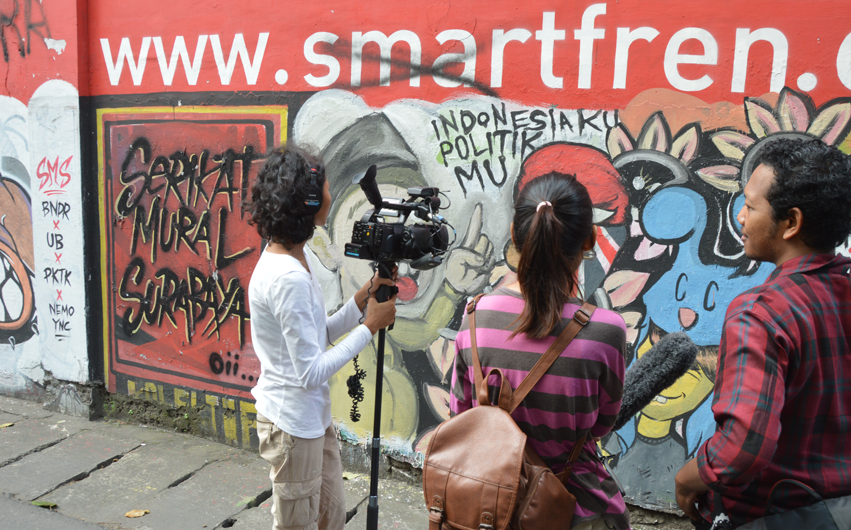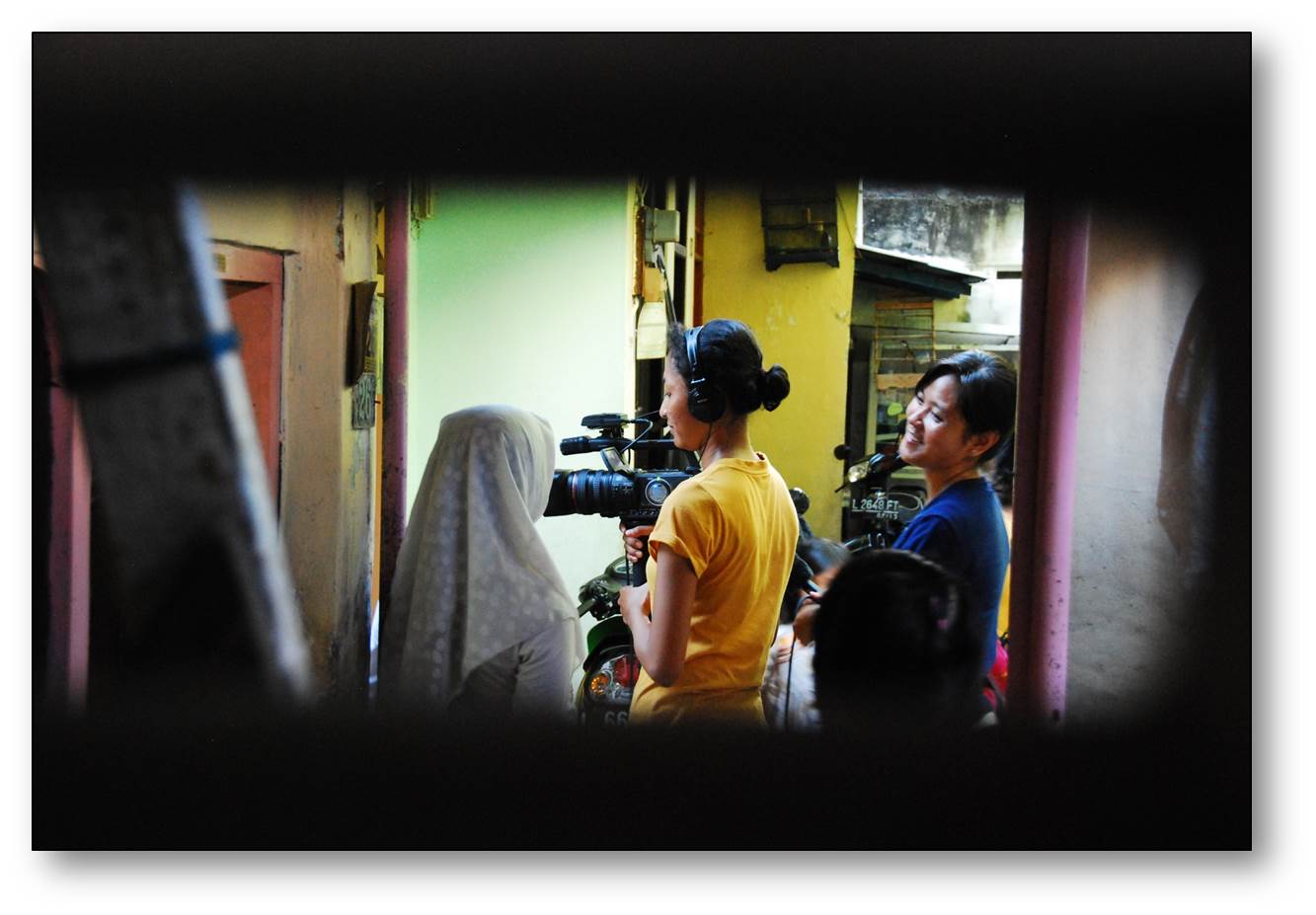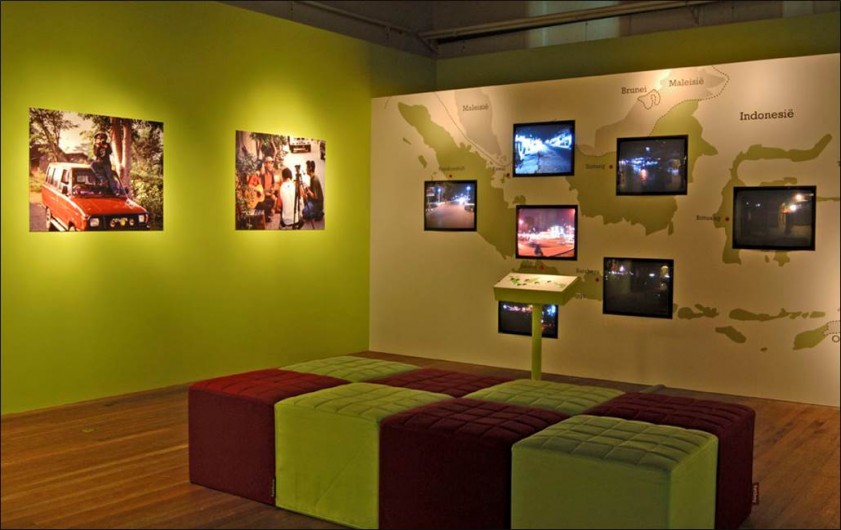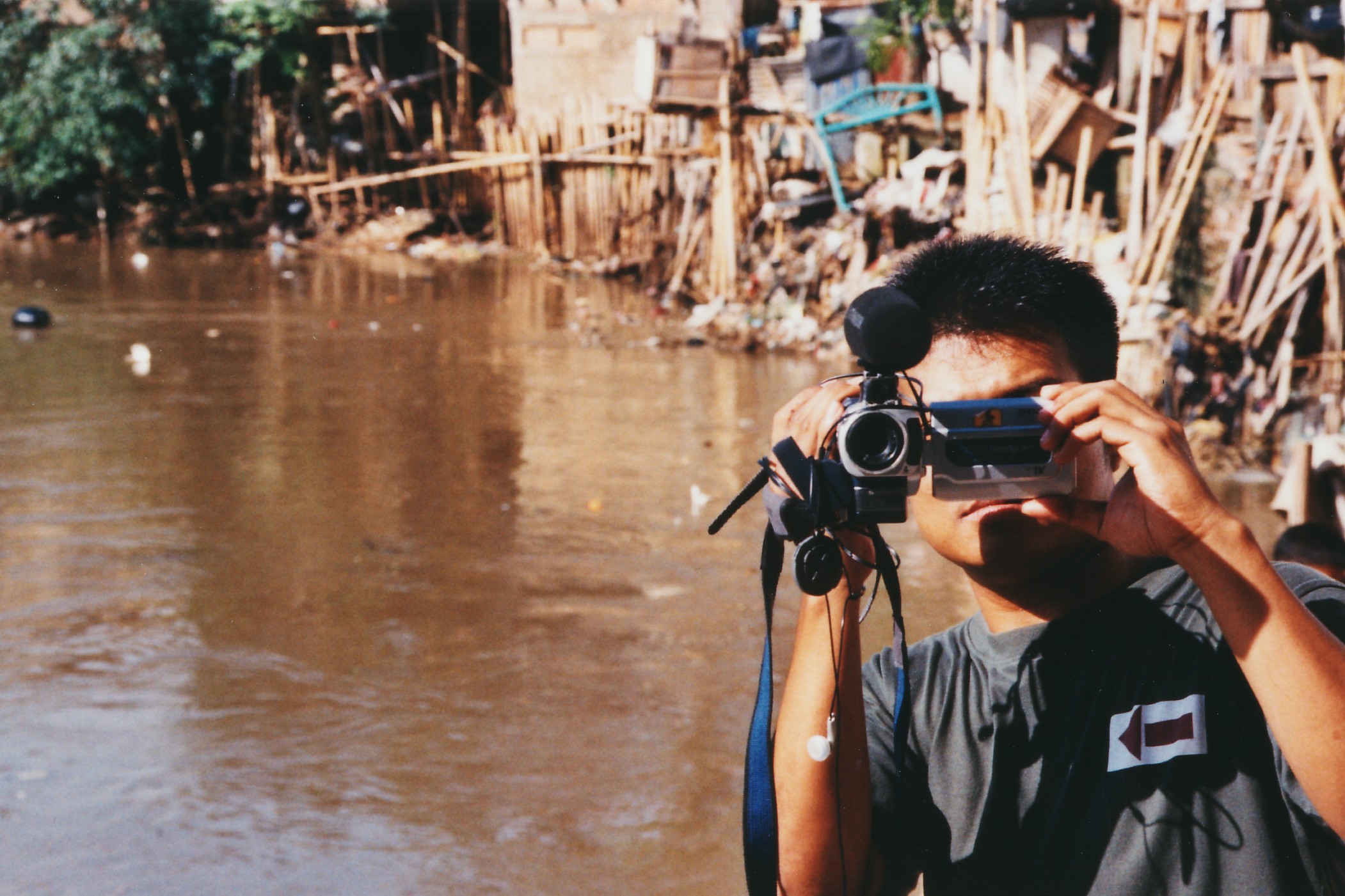
In 2003, KITLV initiated this long-term data-generating research project in cooperation with Indonesian partners LIPI (The Indonesian Institute of Sciences) and Offstream Film. The aim is to establish an audiovisual archive of everyday life in Indonesia during the 21st century, and to conduct research on daily life through this archive. To this end recordings are made in Jakarta, Delanggu (Central Java), Payakumbuh (West Sumatra), Kawal (on the island of Bintan), Sintang (West Kalimantan), Bittuang (Tana Toraja on Sulawesi), Ternate, and Surabaya. Every four years recordings are made at the same locations in order to trace changes and continuities.
The procedures for filming these locations are bound to a strict format in order to facilitate comparisons over time. Another important strategy in approaching everyday life is the recording of a variety of themes and topics. In general, the project covers the fields of work, social life in the public sphere, leisure, religion and aspects of private life. So far, an archive has been created of some 500 hours of recordings, which have been indexed and made accessible for research on site. In addition, the project has produced several documentaries and a DVD for advanced language teaching. In 2008 an exhibition, ‘24 Hours Indonesia’, was organized at the Tropical Museum in Amsterdam. The clips of this exhibition are now available on YouTube.
How Recording the Future works

In each place one location is chosen as a ‘fixed point’: a crossroads, a street, a square, or a market, in short: public spaces; where recordings are made from 5.30 in the morning (at sunrise) until 21.00 in the evening. These recordings enable us to observe for instance the behavior of traffic and, more in general, the way people use public spaces. A second way to document these public spaces is inspired by footage made in 1912 by Col. J Lamster. He put a camera on the front of his car and drove around the streets of Bandung. This enables us to see a town, a street etc. from the perspective of a driver or passenger. In our project we decided to adopt a similar approach and to film from the top of a car. In addition we made recordings during a trip on a river. A third device to cover a location is a long walk of 3-4 hours while the camera keeps on rolling. Before the walk is made, the trajectory has been explored and mapped. During the walk the filmmakers decide where they stop to talk to people. Usually the first question is about what a person is doing, and then we see where the conversation ends. An important strategy in approaching everyday life is the recording of a variety of themes and topics. Some of these belong to obvious aspects of everyday public life that we are familiar with, although we tend to ignore them in terms of documentation. As a result they tend to slip away from our memory as soon as circumstances change. There is no rigid system in selecting the topics, because everyday life consists of a large number of different activities in a variety of contexts. In general, the project covers the fields of work, social life in the public sphere, leisure, religion and aspects of private life. As the project develops over time it is possible to add new topics and to include new themes. In this respect the project offers room for a great deal of flexibility within a well-structured frame.
The archive and products

So far, an archive has been created of some 500 hours of recordings, which have been indexed and made accessible for research on site. In addition, the project has produced several documentaries and a DVD for advanced language teaching. In 2008 an exhibition, ‘24 Hours Indonesia’, was organized at the Tropen Museum in Amsterdam. On a map recordings from the eight film locations were shown simultaneously and there was a possibility to view 12 clips on daily life in Indonesia. The clips are now available on YouTube: search for ‘kitlvrtf’. The first documentary ‘Don’t Forget to Remember me’; was a success and has been shown on the online film festival ‘Humanity explored’ at Culture Unplugged. More then 2000 people watched the documentary and entered the category ‘best rated’. The documentary can still be seen at the Culture Unplugged archive: www.cultureunplugged.com. Three other documentaries were made. The first is a portrait of Ibu Mooryati Soedibyo, a senior leading Indonesian woman in the cosmetic and health industry as well as in politics. The second is on performances of authority in everyday life and the third one about education in Post-new order Indonesia. Information about these documentaries can be asked with the coordinator.
In 2010 preparations started for a public access to the Recording the Future audiovisual collection under the name Virtual Indonesia. This application was first launched in 2011 in Indonesia at the PDII-LIPI on 27 April and on 24 June in Leiden, the Netherlands. Thanks to Virtual Indonesia researchers now have direct access to the RtF-collection. A password to get access to Virtual Indonesia can be requested from dr. Steijlen (see email).
People involved

Recording the Future is a project in progress. The fundament for the project was developed during the first four years by Lexy Rambadeta, Henk Schulte Nordholt, Fridus Steijlen and Andre Triadiputra. While recording in the field the team (including Indonesian and Dutch members) discuss the proceedings and frameworks of the project. In the end, the Indonesian members of the team who are doing the actual recordings, make the final decisions on the interviews and the recordings.
For information and suggestions please contact the researcher/coordinator Prof. Fridus Steijlen.
Project members:
Lexy Rambadeta (camera & interviews/ 2003-onwards)
Andre Triadiputra (camera/ 2003-2009)
Prof. Fridus Steijlen (coordinator, research/ 2003-onwards)
Prof. Henk Schulte Nordholt (project leader, research/ 2003-onwards)
Dr. Roger Tol (research, field consultancy/ 2009-2015)
Ratih Prebatasari (camera & interviews/ 2009-onwards)
Hanni Christania (interviews/ 2010-2011)
Sekar Sari (interviews/ 2012-2015, 2017-onwards)
Magastowo Fransiscus Sales (camera & interviews 2016-onwards)
Ibu Yusni (LIPI representative 2005-2009)
Aki Baihaki (researcher 2008)
Dr. Deasy Simandjuntak (researcher 2008-2010)
Jan van Rosmalen (KITLV collections 2009-2014)
Dr. Andy Fuller (research fellow 2011)
Dr. Alpha Amirrachman (research fellow 2012)
Dr. David Kloos (research fellow 2013)
Jemma Middleton (internee 2014)
Advisor: Dr. Mark Westmoreland (Leiden University).
Field support: Universitas Andalas Padang, Universitas Airlangga Surabaya, Universitas Hassanudin Makassar, Leiden University, Tropical Museum Amsterdam, Kobus Sintang, Golden Boutique Hotel Angkasa Jakarta.
Scientific board: Prof.dr Webb Keane (University of Michigan), Prof.dr Bambang Purwanto (Universitas Gajah Mada Yogyakarta), Prof.dr Krisna Sen (University of Western Australia), Prof.dr Patricia Spyer (Leiden University) and drs. Jean Hellwig (Vista Far Reaching Visuals, Amsterdam).
PROJECTS
Click here to go back to the full list of research projects ongoing at the KITLV/Royal Netherlands Institute of Southeast Asian and Caribbean Studies and in collaboration with other departments and institutions.
Ireen Hoogenboom (project coordinator)
Fridus Steijlen (advisor)
David Kloos
Virtual Indonesia
(for access ask coordinator
for password and username )
Documentary at Culture Unplugged
Short documentary: ‘Being prominent in Indonesia’
YouTube Channel Recording the Future
Living in a Makeshift World? Mobility, Temporariness, and Everyday Life in Indonesia. Visual Anthropology Review 31 (2): 147–162. by David Kloos (2015)
Indonesian Working papers RtF by H. Schulte Nordholt and F. Steijlen (2007)




